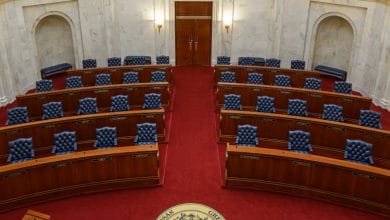In 2022, libraries became news in Arkansas. First the Fayetteville Public Library agreed to host a LGBTQ event for minors that included a drag show for kids and the availability of adults (not their parents) to give support on gender transition. Once the public spotlight was on the library, its board backed out of hosting the event. But, this was not the first LGBTQ event the library had hosted for children.
Then, the public became aware that the Craighead County Library was placing sexually explicit materials in the children’s section and that some other public libraries were also allowing children to have access to sexually explicit materials, including transgender materials.
With some library boards being unconcerned (or perhaps even pleased) about the sexualization of children, parents are now looking to the Arkansas General Assembly for help. Will the legislature step in to protect children from these groomers?
It is not a question of stopping obscenity in libraries. First, the legal standard for material to be considered obscene is difficult to prove. Second, material can be sexually explicit and inappropriate for children without being obscene.
The solution should not be difficult or complicated. The solution is to require libraries to restrict minors from access to sexually explicit material.
There is already an Arkansas law regulating library internet access for minors. Arkansas Code § 13-2-103 requires libraries to restrict access by minors to sexual material considered “harmful to minors.”[i] But there is a flaw in the library internet law. The flaw is in the definition of “harmful to minors” as borrowed from the obscenity laws in Arkansas Code § 5-68-501. Here is the definition.
(2) “Harmful to minors” means that quality of any description, exhibition, presentation, or representation, in whatever form, of nudity, sexual conduct, sexual excitement, or sadomasochistic abuse, when the material or performance, taken as a whole, has the following characteristics:
(A) The average person eighteen (18) years of age or older applying contemporary community standards would find that the material or performance has a predominant tendency to appeal to a prurient interest in sex to minors;
(B) The average person eighteen (18) years of age or older applying contemporary community standards would find that the material or performance depicts or describes nudity, sexual conduct, sexual excitement, or sadomasochistic abuse in a manner that is patently offensive to prevailing standards in the adult community with respect to what is suitable for minors; and
(C) The material or performance lacks serious literary, scientific, medical, artistic, or political value for minors;
The underlined language in (C) keeps much sexually explicit materials from being considered “harmful to minors” under the library internet law. How are you going to prove material on sex acts does not have some literary or artistic value?
It shouldn’t be a matter of determining whether the sexual material has any literary or artistic value because, even if it has some literary or artistic value, it is still inappropriate for children.
It is not a question of banning books. It is only a question of whether minors should have access to sexually explicit material. Some library boards think it is okay to expose children to such materials at a young age. The questions are: What do YOU think about children being sexualized through library materials, and what should the LEGISLATURE do about it?
The House and Senate Committees on State Agencies and Governmental Affairs probably will have jurisdiction over library legislation; however, legislation that also regulates school libraries might get assigned to the Education Committees. Another possible assignment might be the Children and Youth Committee in the Senate and the House Committee on Aging, Children and Youth, Legislative & Military Affairs.
[i] Here is the text of Arkansas’s library internet use law for minors.
13-2-103. Library computer use — Policy — Signed agreement form required.
(a) The board of directors of each library operated as an entity of the state or any city, county, or other political subdivision of the state with one (1) or more public access computers shall develop, adopt, and implement a written policy that:
(1) Establishes and maintains a system to prevent a minor from gaining computer access to materials harmful to minors as defined in § 5-68-501;
(2) Provides for:
(A) Suspending the privilege of a minor to use the public access computers if the minor violates the policy; and
(B) Revoking such a privilege for a repeat offender; and
(3) Requires each user to sign a computer-use agreement form outlining proper and improper use of public access computers prior to the user’s being allowed to access the computer equipment.
(b) For purposes of this section, “public access computer” means a computer that is:
(1) Located in a public school or public library;
(2) Accessible by a minor; and
(3) Connected to any computer communication system such as, but not limited to, what is commonly known as the Internet.
(c) Copies of the standards and rules for the enforcement of this section shall be submitted to the Arkansas State Library.






